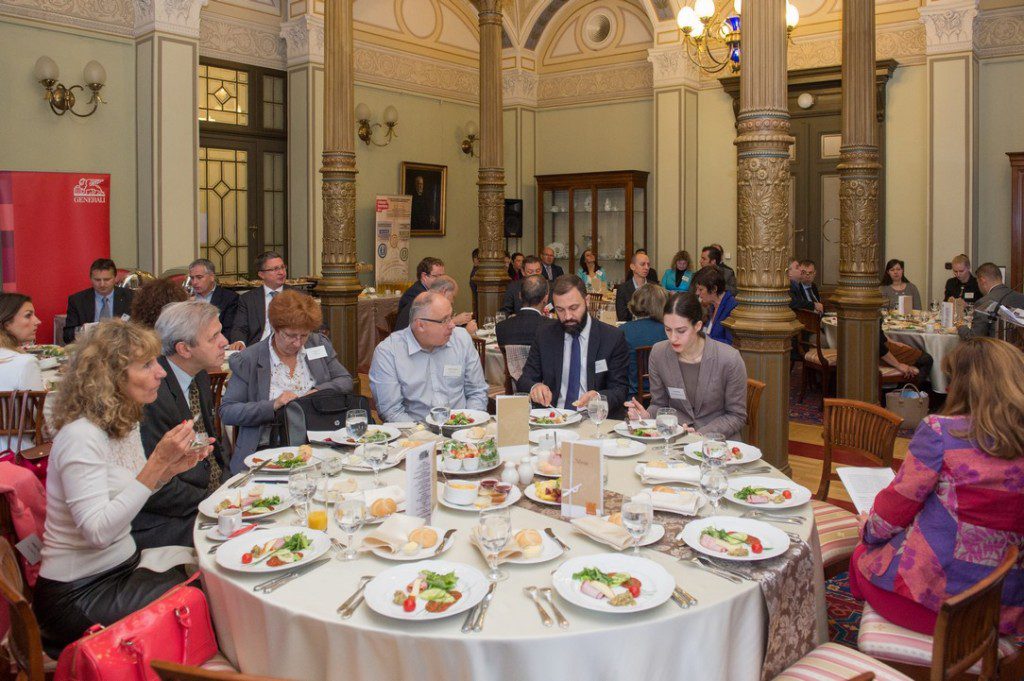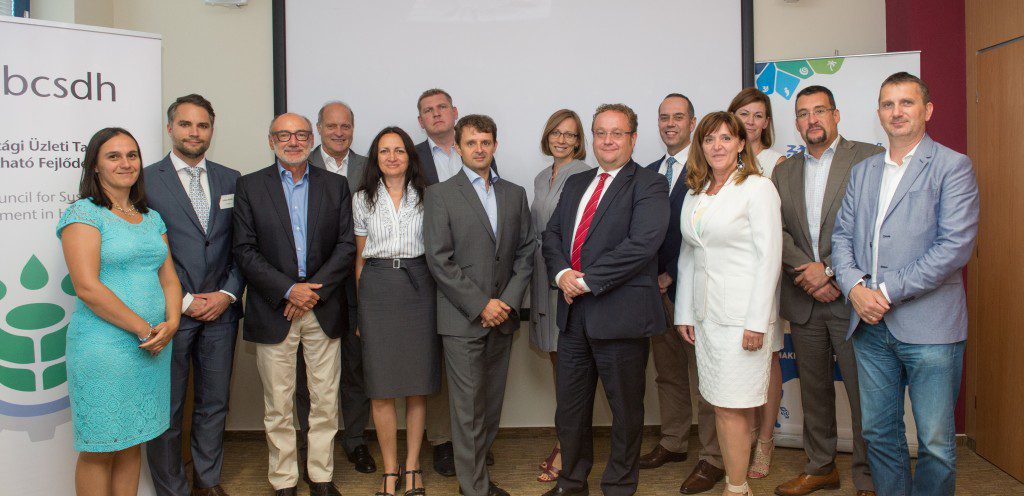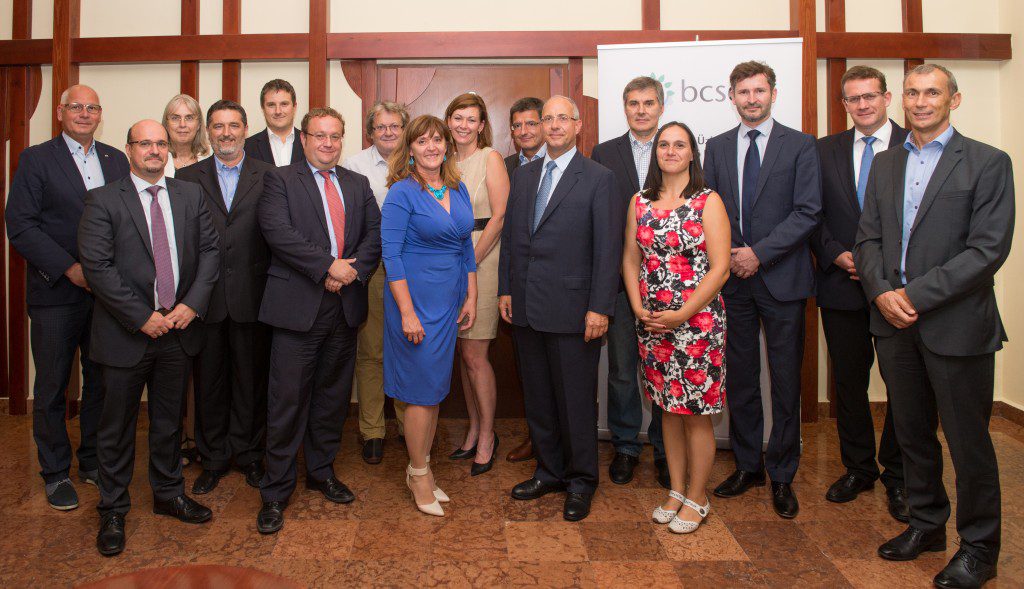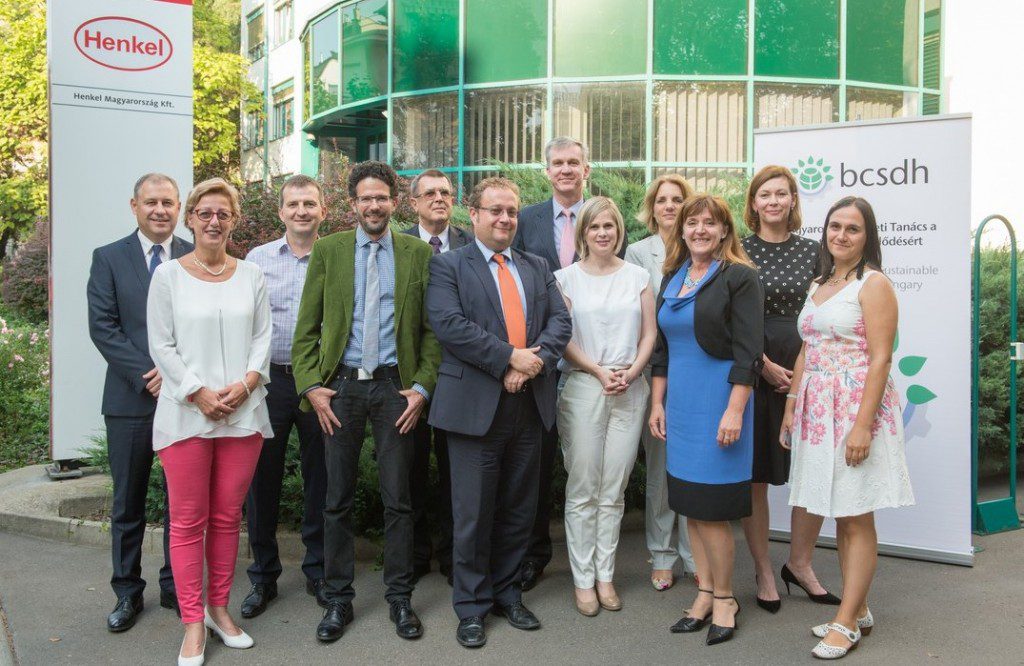Paul Watkinson, a world-famous climate change negotiator, held an unconventional and carbon-neutral live Skype presentation at the BCSDH Business Breakfast about the tasks and business opportunities which have emerged following the entry into force of the Paris Climate Agreement.
Paul Watkinson, Head of the Climate Negotiation team at the French Ministry of Environment, Energy and the Sea and the French Chief Climate Negotiator held a successful video presentation at the Business Breakfast organised for CEOs by the Business Council for Sustainable Development in Hungary. The BCSDH currently has more than 70 corporate members that contribute 30% of Hungary’s GDP, and this year ‘Climate Change’ is the main topic of the BCSDH Action 2020 Hungary program. On this occasion the climate negotiator was invited by the BCSDH and the Embassy of France.
Followed by the opening speech of Mr. Eric Fournier, French Ambassador to Hungary, Paul Watkinson talked about the ratification of the Climate Agreement which has occurred at a faster pace than predicted, thereby influencing the current agenda. As early as in Marrakesh at the COP22 negotiations in November, the topic of how the agreement will be reflected in the concrete measures of certain countries, including EU member states, should be discussed: “Ambitious goals require decisive steps that have real impacts” – is how the most important goal for the upcoming period was summarised by the climate negotiator.
Paul Watkinson warned participants of the meeting that by the second half of the century we must become carbon neutral. This will not be an easy task, and everyone will play a significant role in it. One of the most important tools for making this change may be the introduction of carbon pricing. Even though a unified system is still under development, there are countries in which the implementation of carbon pricing is officially ongoing. In November, France might adopt a law aimed at defining a minimum price for carbon emissions at the rate of 30 Euro/tonne. The widespread introduction of this system could extensively impact the economic balance of power.
“One of the outcomes of the Paris Climate Agreement is that national action plans will become visible and transparent, which will accelerate processes” –Watkinson highlighted. However, he added that close cooperation between governments and actors from the business sector will be crucially important in this development.
The business sector’s biggest challenge is to integrate medium and long-term considerations into businesses that operate in an ever-changing market environment and which are currently driven by strategies and decisions based on short-term market interests.
This will be achieved only if companies perceive these changes as advantages, and they are willing to transform their existing practices to meet these requirements.
Paul Watkinson closed his unconventional presentation by stating that “Defining the flow of investments and finances in accordance with their effects on climate change should be a major consideration”.
“The Paris Climate Agreement will come into force soon. BCSDH has an important mission supporting its members to become not only followers but also active leaders of future changes and global trends. Today’s event is designed to help us in this goal.” – explained Attila Chikán Jr., President of the BCSDH.
The BCSDH’s Action 2020 Hungary program is a tool for this purpose: to help with the discovery and promotion of good business solutions that go beyond business-as-usual and which can be disseminated amongst a wide range of business actors. Close to 50 companies have already joined the program.
The gallery of the event you can find here.












